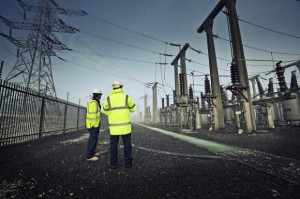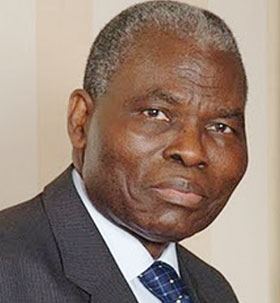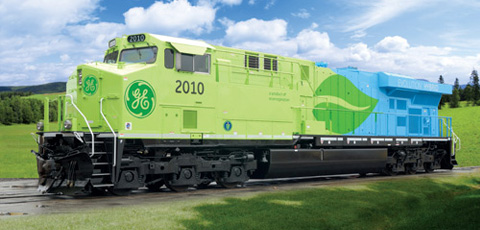Murky deals cast doubt over Nigeria’s power privatization
For decades Nigeria has failed to fix chronic electricity shortages that stifle growth and help keep millions in poverty.
That is about change, the government says, when most of the power sector is privatized by the end of the year. Its target is to increase electricity output tenfold to 40,000 megawatts by 2020.
Turning on the lights in a country where power cuts are a daily ordeal could push Nigeria’s growth into double digits and help diversify its economy away from oil, which in 50 years has created a super-rich elite but has done little to reduce mass poverty.
Yet since power minister Barth Nnaji resigned in August over an alleged conflict of interest, doubts are gathering about the integrity of the process, as oligarchs with scant experience in running power firms line up for a slice of this lucrative pie.
As with Russia in its 1992-1994 sell off of state assets, it is entrenched political and business elites who look set to win much of Nigeria’s power sector, even while Western aid agencies are backing the process with tens of millions of dollars.
The government announced preferred bidders for 10 power distribution firms this week and has approved bids for five power plants, a major step forward. But already the companies who lost out and labor unions have said the process was fraudulent and the results to be scrapped.
The wealthy figures behind the consortia bidding already control vast stakes in Nigeria’s economy and political machine, and many of the assets only had one approved bidder each. It is often felt that since the oligarchs have such sway in Nigeria, it is better to have them in the process rather than outside it.
In past Nigerian privatization efforts, unqualified bidders and political wrangling caused years of legal battles and delays after assets were awarded. Sometimes funds were diverted to people who failed to revive the firms and left debts unpaid.
Nigeria tried to sell former telephone monopoly NITEL for more than 10 years but buyers who won privatization bids never paid up. After years of legal rows, it remains in state hands.
The stakes are higher for power.
“For a sector being primed for the most comprehensive overhaul in its history, it was perhaps expected that entrenched forces of the ancient regime would not let go without a fight,” Nigerian policy analyst Sanya Oni said.
“It is … the beginning of the long, difficult road.”
POWER GODFATHERS
Despite holding the world’s seventh largest gas reserves, Nigeria produces less than a tenth of the amount electricity South Africa provides for a population a third of the size.
Some $40 billion has gone into reforms in the last 20 years, says Control Risks, a consultancy, yet power has only improved slightly.
Sorting out this mess would seal President Goodluck Jonathan’s legacy.
The Power Holding Company of Nigeria is being sold as six generation firms and 11 distribution companies. A contract for transmission has been given to Canadian firm Manitoba Hydro.
Among the figures angling for a slice of privatized power is billionaire businessman Emeka Offor. His company Chrome Group is the highest bidder for firms in the capital Abuja and Enugu.
Offor made his fortune from government contracts, especially under military dictator Sani Abacha in 1990s.
Between 1999 and 2002, Chrome Group worked on a $100 million contract for maintenance on Nigeria’s Port Harcourt oil refineries, in Africa’s biggest oil industry. They have operated at just 30 percent capacity since, and the state oil firm has said the work was not done properly.
“The turnaround maintenance was successfully completed and duly handed over to Port Harcourt Refining Company,” Chrome Group spokeswoman Val Oji wrote in an email, with the relevant completion certificates attached, when asked about it.
Global Witness, a UK-based watchdog, investigated Offor’s Seychelles-registered oil firm Starcrest in February. It said it won an oil block in 2006, then within months signed Swiss firm Addax on as ‘technical partner’ for a $35 million fee.
That deal left Starcrest with a big minority stake, and Addax, the firm with the expertise to produce the oil, paid a $55 million signature bonus. Offor told the NGO that Nigeria’s financial crimes commission had cleared Starcrest of wrongdoing.
The deal resembles arrangements common in Nigeria, in which a company run by a local oligarch ‘partners’ with a foreign firm with the know how, and takes a cut.
Industry sources say power privatization is going on in the same way, which will make it slow and costly, even if it does finally turn the lights on.
Oji cited two transmission lines completed in the northern state of Gombe in 2010 as evidence Chrome had relevant experience.
OTHER PLAYERS
Another powerful figure lining up is General Abdulsalami Abubakar, who was military ruler for a year after Abacha’s death in 1998. He chairs Integrated Energy, which has the preferred bid for electricity distribution companies in Yola, Ibadan and the two covering the commercial capital Lagos.
Local press have reported that former military dictator Ibrahim Babangida, one of the most powerful ‘godfathers’, is putting his weight behind the North South Power Company, the only consortium approved to bid on the Shiroro plant.
A spokesman for Babangida, Kassim Afegbua, however denied that he was “involved in any power company at all”.
Bola Tinubu, former Lagos governor of Lagos and undisputed godfather of Nigeria’s commercial hub, is backing Oando’s bid for a distribution company servicing the south, including Lagos. Oando, run by his nephew Wale, is an oil and gas company, but it has made small inroads into power.
It set up the Akute Power company to develop a 12.15 MW power station that now services a Lagos water plant.
Tony Elumelu’s Transnational Corporation, which owns, amongst other things, The Hilton hotel in Abuja, is a preferred bidder for the Ugheli thermal power plant.
“None of these guys has much of a background in power. They can’t do it alone. They need partners,” said Bismarck Rewane, CEO of Lagos-based consultancy Financial Derivatives.
Some do have them. Yet globally respected power companies like AES, Essar and Schneider Electric who showed an initial interest in buying assets in 2010 decided not to join up with Nigerian partners and bid.
Others involved in bids, including Arumemi Johnson, the chairman of airline Arik Air, and billionaire oil magnate Femi Otedola, were banned last month by the central bank from borrowing money due to unpaid debts — poor financing is a key risk to the long-term success of power projects, as the government estimates the industry needs $10 billion a year.
Otedola repaid his debt days after the ban was announced.
“In the history of privatization in this country, the common wealth has largely ended in the hands of senior government officials and their cronies and kin,” wrote Mohammed Haruna in The Nation on Wednesday. “Unless the authorities … guarantee integrity, their privatized offspring can only bring more pain.”
“LACKING TRANSPARENCY”
U.S. and British aid agencies are overseeing this process.
Britain’s Department for International Development (DFID) pays 200,000 pounds ($322,800) a year for some embedded consultants who also have strong political ties, a source who has worked on one of the power projects they fund said.
A DFID spokesman told Reuters they had helped to make the privatization “as transparent as possible”. DFID has spent 21 million pounds since 2007 on the power sector. Since then, generation has risen by roughly 1,000 megawatts, according to Nigerian government data. Yet tens of thousands are needed.
“An independent review … concluded that a substantial part of the increase in power supply would not have occurred without … these expert advisers,” the DFID spokesman said.
No new minister was appointed after Nnaji resigned on August 28 over allegations he was involved in Geometric, one of the firms bidding. DFID openly funded Nnaji’s office throughout, even though it was public knowledge that he has a stake in Geometric.
“The irony for donors is that they stand accused of helping to fuel the very practices they aim to combat …. lending credibility to a process they should have known to (be) lacking in transparency,” said Antony Goldman, head of PM consulting.
Nnaji was seen as a technically competent minister, but a power ministry source says he did not get on with Vice President Namadi Sambo, the man with the most influence over the sector.
Sambo is head of the National Council on Privatisation (NCP), which has the final say on which firms make it through the bidding process. He also manages the National Independent Power Projects, a state-run scheme to build ten power plants set up eight years ago that has swallowed up $20 billion of government funds but left only four plants producing power.
Sahelian Power, the sole approved bidder for a distribution firm serving northern Nigeria’s main city of Kano, has close ties with Sambo, a northerner, a power ministry official said.
He also noted that the only distribution company judged by the body Sambo chairs to have had no technically qualified bidders was in Sambo’s own home state.
Sambo did not respond to a request for comment. He has publicly said does not own any firms bidding.
Many Nigerians say there is still grounds for optimism.
A senior power sector official said it was “inevitable” that those with political backing would be behind the bids. “That’s just Nigeria,” he said, but he added: “If they are supported by technically capable companies then does it really matter?”
It may not matter in the case of, say, Abubakar. The retired general is no power expert but Integrated Energy has partnered up with the Philippines’ largest power retailer Manila Electric on a series of bids for state assets.
If all bids can find competent foreign partners like this, the process could yet get the lights to work, analysts say.
These men with big bucks may also have been the only people willing to take on the financial risk at this stage, starting with a minimum bid bond of $2 million, said Kayode Akindele, partner at Lagos-based financial adviser 46 Parallels.
Besides, in Nigeria, where nothing happens without the oligarchs, getting them involved may be the easiest option.
“It helps to have powerful interests part of the process,” Akindele said. “Rather than outside, working against it.”
Source: Reuters









